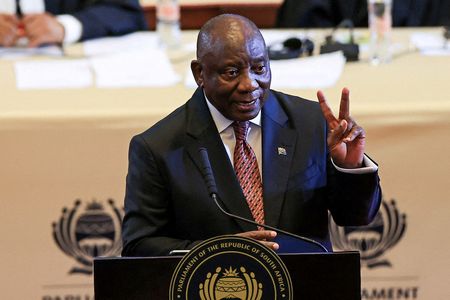DAKAR (Reuters) – Senegal’s top court has rejected a move by lawmakers to revise an amnesty law that would have paved the way for possible prosecutions over the deaths of dozens of protesters during anti-government demonstrations between 2021 and 2024.
The West African country’s parliament had approved revisions earlier this month to the law, which was passed in March 2024 under former President Macky Sall to pardon offences committed by both security forces and protesters.
Riots broke out across Senegal in the run-up to elections on March 24 last year, fuelled by concerns that Sall was muzzling his opponents and seeking to stay in power beyond the end of his mandate.
At least 65 people were killed, mostly by bullets, according to Amnesty International, making it Senegal’s deadliest violent episode since it won independence from France in 1960.
Sall’s government and the security forces denied any wrongdoing, although witnesses at the time told Reuters that security forces fired on crowds.
Rights groups and lawyers called for the amnesty law to be repealed because it left families of the dead with no recourse for justice.
The proposed revisions, passed by lawmakers on April 2, would have removed the amnesty for specific crimes including murder, torture and forced disappearance unless those actions had “a link to the exercise of public freedom or a democratic right”, according to the ruling by the Constitutional Court published on Wednesday.
But the court found that such crimes violated the constitution and could therefore not be pardoned under any circumstances, including under the amnesty law.
Opposition coalition Takku Wallu Senegal welcomed the court’s decision in a statement. Opposition lawmakers had previously voiced concerns that the proposed revisions were one-sided and would shield those protesters whom they accused of looting and stoking violence.
Senegal’s ruling party Pastef also reacted positively to the ruling, saying that although the revisions it supported had been rejected, the Constitutional Court had affirmed that individuals could file complaints for serious crimes.
Senegal’s President Bassirou Diomaye Faye and Prime Minister Ousmane Sonko were both released from prison after the amnesty law took effect, shortly before the vote that swept them to power.
(Reporting by Diadie Ba; Writing by Sofia Christensen; Editing by Robbie Corey-Boulet and Gareth Jones)






